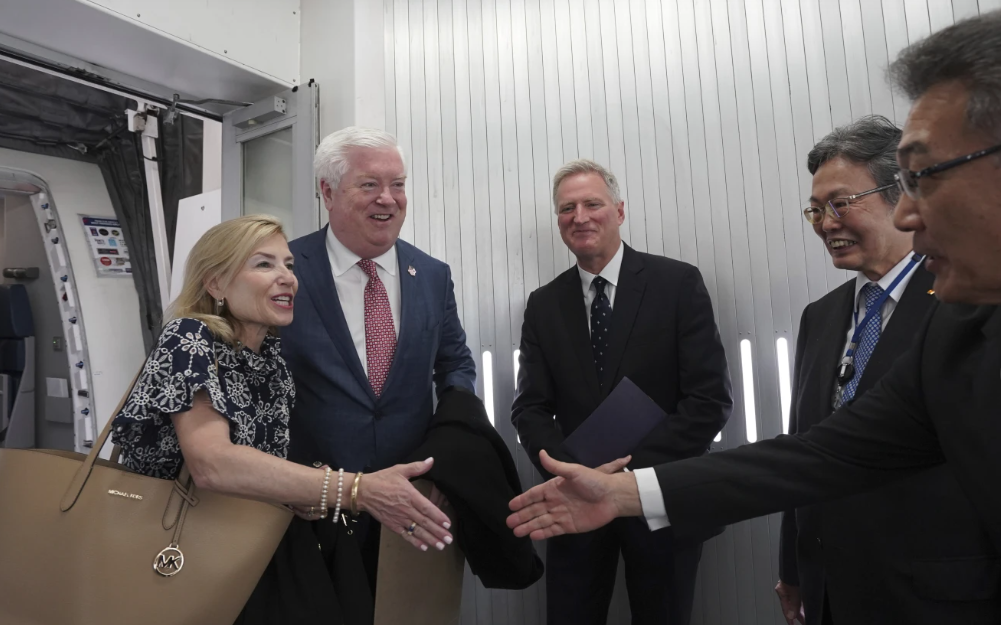The newly appointed U.S. ambassador to Japan, George Glass, arrived in Tokyo on Friday, expressing confidence that the United States and Japan will successfully negotiate a deal on tariffs. A well-known figure in finance, investment banking, and tech, Glass steps into his diplomatic role amid sensitive economic discussions between the two allies.
Speaking to reporters at Haneda Airport, Glass said, “I’m extremely optimistic that a deal will get done.” His arrival coincided with the momentum from the initial round of tariff talks in Washington, where both sides agreed to push for a swift resolution and scheduled a second round of meetings later in the month.
President Donald Trump, along with key economic advisors Treasury Secretary Scott Bessent and Commerce Secretary Howard Lutnick, participated in the Washington meeting with Japan’s Economic Revitalization Minister Ryosei Akazawa. The discussions reflect Trump’s broader effort to reshape trade relationships and finalize agreements that mitigate the impact of U.S.-imposed tariffs, which have caused international concern over their economic implications.
Although Japan recently received a temporary 90-day reprieve from a proposed 24% universal tariff, existing tariffs—including a 10% baseline rate and a 25% duty on automobiles, parts, steel, and aluminum—remain in effect. Japanese Prime Minister Shigeru Ishiba warned that these tariffs could significantly harm Japan’s economy and reduce Japanese investments in the United States. He called for a mutually beneficial solution.
Beyond trade, Trump also raised the issue of Japan increasing its defense budget and taking on more responsibility for the approximately 50,000 U.S. troops stationed in the country. Stressing the importance of security cooperation, Glass remarked, “We sit with Japan in a very tough neighborhood. You have Russia, you have China, and you have North Korea.” He emphasized the need for both militaries to be fully equipped to counter regional threats, particularly from China.
During his Senate confirmation hearing in March, Glass pledged to engage in “tough conversations” regarding tariffs and the U.S. trade deficit with Japan, while also urging Tokyo to expand its role in regional security.
Japan was among the first nations to enter direct tariff negotiations with Washington, and other allied countries are watching the outcome closely. Glass said he believes a deal is within reach, crediting the high caliber of negotiators on both sides and Trump’s personal involvement in the talks, which he described as a top priority.
Citing the U.S. national debt—now approaching $40 trillion—Glass warned that continued fiscal irresponsibility could threaten the country’s economic future. While he didn’t delve into specific steps to bridge the trade gap with Japan, he said his immediate plan after arriving was simple: “What I’d like to do first is to go home and take a nap.”

